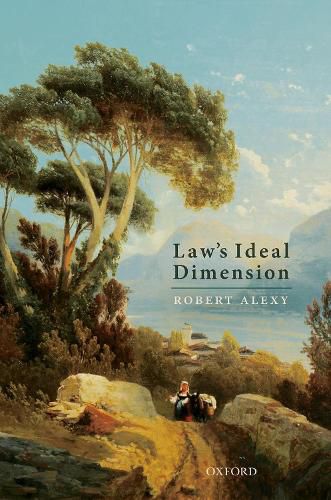Readings Newsletter
Become a Readings Member to make your shopping experience even easier.
Sign in or sign up for free!
You’re not far away from qualifying for FREE standard shipping within Australia
You’ve qualified for FREE standard shipping within Australia
The cart is loading…






Law’s Ideal Dimension provides a comprehensive account in English of renowned legal theorist Robert Alexy’s understanding of jurisprudence, as expanded upon from his publications A Theory of Legal Argumentation (OUP 1989), A Theory of Constitutional Rights (OUP 1985), and The Argument from Injustice (OUP 1992).The collection is divided into three parts. Part One concerns the nature of law: it explores its real and ideal dimensions and how the ideal dimension of law is sometimes employed but does not play a systematically important role. Part Two discusses constitutional rights, human rights, and proportionality. It defends the construction of constitutional rights as principles against objections raised by the rule construction and elaborates on the nature of constitutional rights as well as the mathematical balancing of those rights. Part Three concerns the relation between argumentation, correctness, and law. The author concludes this volume with a biographical reflection.
$9.00 standard shipping within Australia
FREE standard shipping within Australia for orders over $100.00
Express & International shipping calculated at checkout
Law’s Ideal Dimension provides a comprehensive account in English of renowned legal theorist Robert Alexy’s understanding of jurisprudence, as expanded upon from his publications A Theory of Legal Argumentation (OUP 1989), A Theory of Constitutional Rights (OUP 1985), and The Argument from Injustice (OUP 1992).The collection is divided into three parts. Part One concerns the nature of law: it explores its real and ideal dimensions and how the ideal dimension of law is sometimes employed but does not play a systematically important role. Part Two discusses constitutional rights, human rights, and proportionality. It defends the construction of constitutional rights as principles against objections raised by the rule construction and elaborates on the nature of constitutional rights as well as the mathematical balancing of those rights. Part Three concerns the relation between argumentation, correctness, and law. The author concludes this volume with a biographical reflection.